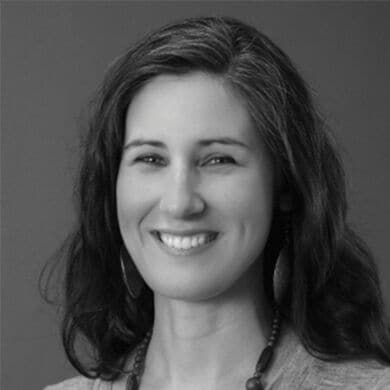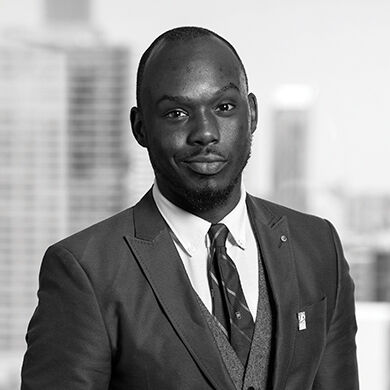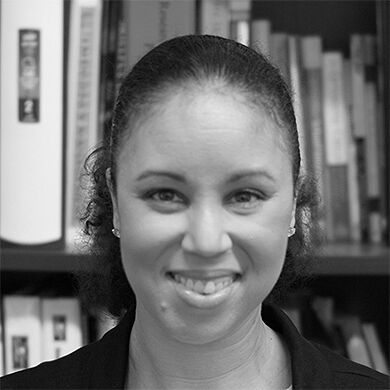
Can You Be a Principal and Still Have a Life?
Must you always be the first at school and the last to leave? Three principals who have this balance thing down share their tips.
As important as teachers are to their students’ success, research says a high-performing principal can make an even greater impact in a high-poverty school.
But how do principals sustain themselves through 60-hour average work weeks? Do the best principals (and teachers, for that matter) have to be the first to get to school and the last to leave? We put those questions to three alum principals who—spoiler alert—were nominated by peers who think they’ve got this balance thing down. What are their secrets?
This is the fifth year that Abby Morton-Garland (R.G.V. ’05) is leading KIPP University Prep High School in San Antonio. It’s the only International Baccalaureate (IB) KIPP high school in the country, and the only IB high school in San Antonio that offers open enrollment. “There’s no tracking,” Garland says. “Everyone who graduates writes a 4,000-word senior thesis, learns a second language, and participates in arts and service…And this past year was the fourth in a row where every child who graduates does so with a college acceptance letter in hand.”

She was the sixth principal in four years to take on her job, with a 1-year-old and 3-year-old at home at the time. What keeps her going, she says, is zero separation between herself, her family, and the community within the one-mile radius where she lives and works in downtown San Antonio.
The church Garland’s husband pastors is three blocks from their home. Her school is 17 blocks away. Much of her husband’s work involves supporting and helping to house immigrants who are waiting for asylum hearings. Members of these families go to Morton-Garland’s school.
When she goes grocery shopping with her daughters, her students are working the checkout lines. “The act of weekly grocery shopping is supporting my students and also raising my daughters. It’s an integrated life. I don’t feel split,” she says.
“I think it’s really easy to put distance between ourselves and the communities we serve…I’ve found living in proximity is sustaining and nourishing because it doesn’t feel like I’m investing in others. It feels like the energy I’m putting out as an educator is sustaining my own family.”
But there’s no ignoring the demands of her schedule. “Every aspect of my life is an opportunity for it to get messy,” she says. “Sometimes it gets messy at school. Sometimes it gets messy at home. The key is to recognize when I’m out of health and out of balance and to pause and try to come back to a place of health and balance.
“I let people see me walking out of the building right after the school bell rings,” she says. “Don’t be afraid to draw lines around your humanity. Don’t split yourself.”
Raymond Fields, Jr. (Metro Atlanta ’05) straddles two principal roles: He’s a founding co-principal of 5-year-old Gratz Prep Middle School (part of the Mastery Charter network in Philadelphia) and this year, he’s leading the new Prep Elementary school, which Philadelphia’s mayor visited in September. Fields has a life and close friends outside of school. He travels. He’s “very single.”

Part of what keeps him on the job, Fields says, is working with a tightknit group of leaders (including Teach For America alums) who have stuck together for five years, all that time asking themselves how to “truly push our students to be leaders in this world.”
Together in their third year, the team engineered a major school culture pivot. They stopped having students walk in straight lines and submit to morning uniform checks. They also worked to enrich the curriculum with Common Core-aligned courses including ones that get students out into the community, learning about civic engagement through service. One of those courses sent Fields and 12 student government members on a fact finding trip last year to Flint, Michigan.
Fields says, “I definitely don’t live in a world where it’s work people versus social people. I never feel like I cannot be my authentic self with my colleagues in all parts of me, including as an openly gay man…I can use funny memes, I can be sarcastic.
“Even on the toughest days, I work alongside people who are equally committed and are willing to be a mirror for me, so I know I’m going to make wise professional decisions.”
Fields credits a nightly workout for his physical health. And for mental stamina? “Being your authentic self at all times.”
Dara [Crocker] Gronau (New Jersey ’02) is the principal of Maplewood Middle School in the New Jersey town where she grew up, just outside Newark’s West Ward. Maplewood is “this special place, where the things that are difficult— who this community wants to be—really matter to me,” she says.

Community pride is wrapped up in inclusiveness. The nonprofit Community Coalition on Race has worked for more than 20 years to prevent the creep of housing segregation in the South Orange-Maplewood School District. Gronau’s school enrolls children who live in public housing and the kids of a Hollywood executive. As a school leader, she’s working to close the gaps in their academic progress.
Gronau and her husband have two daughters, ages 19 and 5, and 3-year-old twin boys. “My single answer for how I make this work is that I have a partner, a really great husband who’s an assistant principal in Newark. When I have to work, he holds down the fort,” she says.
Gronau leaves school at 5 p.m. to pick up the twins from day care and —“depending on what’s time-sensitive and what my energy is like”—works after they go to bed.
“I aim to be family-friendly for my staff. We have nursing moms and make that work. If you’re someone who wants to do this and adopt a child or start a family, surround yourself with other people who are doing it,” she says, “so you know it’s possible. Find the right district.”
Sign up to receive articles like this in your inbox!
Thanks for signing up!
Content is loading...


